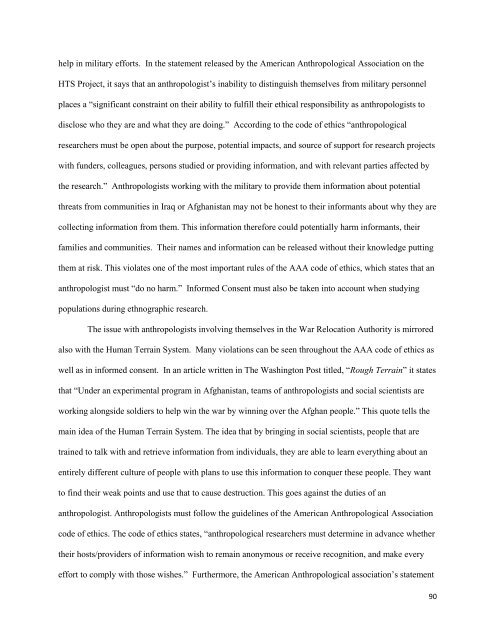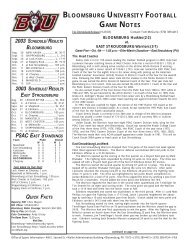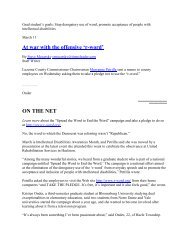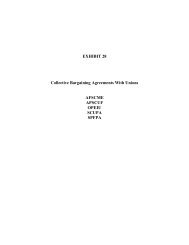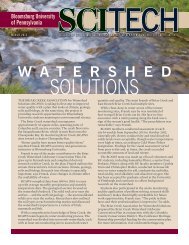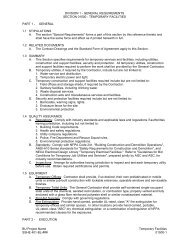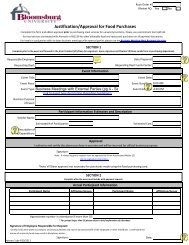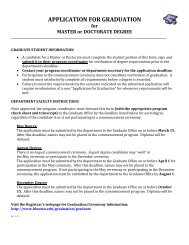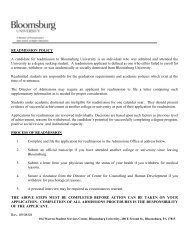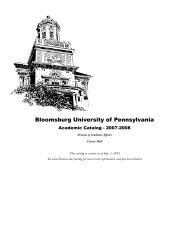Human Rights at Home and Abroad: Past, Present, and Future
Human Rights at Home and Abroad: Past, Present, and Future
Human Rights at Home and Abroad: Past, Present, and Future
You also want an ePaper? Increase the reach of your titles
YUMPU automatically turns print PDFs into web optimized ePapers that Google loves.
help in military efforts. In the st<strong>at</strong>ement released by the American Anthropological Associ<strong>at</strong>ion on the<br />
HTS Project, it says th<strong>at</strong> an anthropologist‘s inability to distinguish themselves from military personnel<br />
places a ―significant constraint on their ability to fulfill their ethical responsibility as anthropologists to<br />
disclose who they are <strong>and</strong> wh<strong>at</strong> they are doing.‖ According to the code of ethics ―anthropological<br />
researchers must be open about the purpose, potential impacts, <strong>and</strong> source of support for research projects<br />
with funders, colleagues, persons studied or providing inform<strong>at</strong>ion, <strong>and</strong> with relevant parties affected by<br />
the research.‖ Anthropologists working with the military to provide them inform<strong>at</strong>ion about potential<br />
thre<strong>at</strong>s from communities in Iraq or Afghanistan may not be honest to their informants about why they are<br />
collecting inform<strong>at</strong>ion from them. This inform<strong>at</strong>ion therefore could potentially harm informants, their<br />
families <strong>and</strong> communities. Their names <strong>and</strong> inform<strong>at</strong>ion can be released without their knowledge putting<br />
them <strong>at</strong> risk. This viol<strong>at</strong>es one of the most important rules of the AAA code of ethics, which st<strong>at</strong>es th<strong>at</strong> an<br />
anthropologist must ―do no harm.‖ Informed Consent must also be taken into account when studying<br />
popul<strong>at</strong>ions during ethnographic research.<br />
The issue with anthropologists involving themselves in the War Reloc<strong>at</strong>ion Authority is mirrored<br />
also with the <strong>Human</strong> Terrain System. Many viol<strong>at</strong>ions can be seen throughout the AAA code of ethics as<br />
well as in informed consent. In an article written in The Washington Post titled, ―Rough Terrain‖ it st<strong>at</strong>es<br />
th<strong>at</strong> ―Under an experimental program in Afghanistan, teams of anthropologists <strong>and</strong> social scientists are<br />
working alongside soldiers to help win the war by winning over the Afghan people.‖ This quote tells the<br />
main idea of the <strong>Human</strong> Terrain System. The idea th<strong>at</strong> by bringing in social scientists, people th<strong>at</strong> are<br />
trained to talk with <strong>and</strong> retrieve inform<strong>at</strong>ion from individuals, they are able to learn everything about an<br />
entirely different culture of people with plans to use this inform<strong>at</strong>ion to conquer these people. They want<br />
to find their weak points <strong>and</strong> use th<strong>at</strong> to cause destruction. This goes against the duties of an<br />
anthropologist. Anthropologists must follow the guidelines of the American Anthropological Associ<strong>at</strong>ion<br />
code of ethics. The code of ethics st<strong>at</strong>es, ―anthropological researchers must determine in advance whether<br />
their hosts/providers of inform<strong>at</strong>ion wish to remain anonymous or receive recognition, <strong>and</strong> make every<br />
effort to comply with those wishes.‖ Furthermore, the American Anthropological associ<strong>at</strong>ion‘s st<strong>at</strong>ement<br />
90


